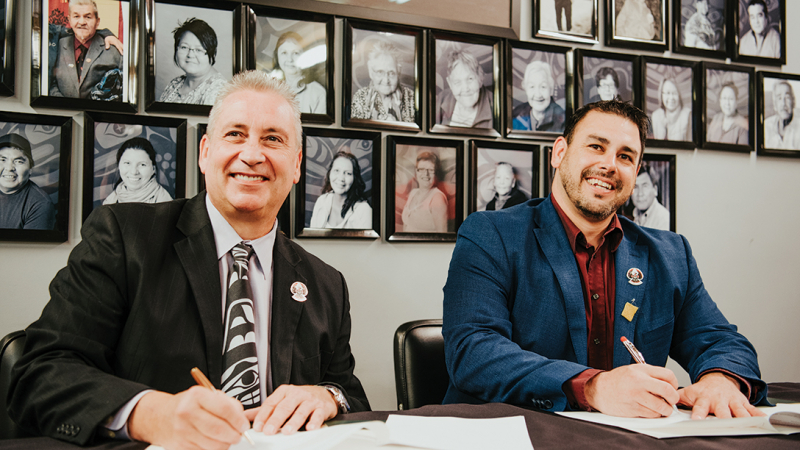Building Reconciliation
A message from UNBC Presidentand Vice-Chancellor Dr. Daniel J. Weeks.

Our country is having many conversations around reconciliation.
Educating our community is an important step. As the chief commissioner of the Truth and Reconciliation Commission stated, “Education has gotten us into this mess, and education will get us out.”
In the four years since the TRC released its report and 94 calls to action, post-secondary leaders across the country have sought ways to respond to the calls around education. These conversations require an ongoing commitment to change and a willingness to address the unique needs of our Indigenous students and communities in order to make a lasting impact. Simply put, reconciliation is not one-size-fits-all.
UNBC took these calls to action to heart and the spirit of reconciliation has been on full display.
Recently, we welcomed Cree/Dakelh artist Clayton Gauthier who is carving cedar planks that represent various First Nations across the North as part of Nenachalhuya – The Cedar Plank Project. Nenachalhuya is a Dakelh word meaning, “You have done us great honour” or “we are thankful for what you have done.” Once completed, the planks will adorn the walls of the University’s Gathering Place.
We also recently launched the 1,000 Ravens for Reconciliation initiative, which encourages students, faculty and staff to take part in a hands-on activity that teaches participants about what reconciliation means while they create one of 1,000 origami ravens, symbolizing a University-wide wish for reconciliation.
And, in early October, we built upon our strong relationship with the Lheidli T’enneh Nation to forge a new partnership, believed to be the first of its kind in Canada. It eliminates barriers to post-secondary education, providing Lheidli T’enneh members with an opportunity to access programs at the University at no cost to the student.
In addition, I was proud to travel to my hometown of Sault Ste. Marie, where UNBC co-hosted the fifth annual National Building Reconciliation Forum. We discussed and considered the role of Canadian universities as we begin the next five years of reconciliation aspirations.
It is my hope that others will look to UNBC as an example of what is possible when we are limited only by our aspirations.
